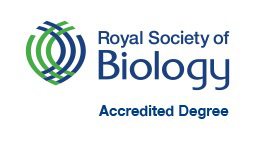Sport and Exercise Science (with integrated year in industry) Code C602 Attend an Open Day Attend an Open Day Clearing places available – 0800 121 40 80
Apply NowYou are viewing this course for September start 2024
Key Facts
C602-
UCAS Tariff
120 - 96
-
Course duration
4 years
Further details on entry requirements
Apply NowKick start and enhance your career prospects with the Sports & Exercise Science degree with integrated year in industry at Aberystwyth University. This course is engineered to give you the head start in the increasingly competitive job market, and upon successful completion of this degree, you will have developed the skills and awareness all of which employers are seeking.
Our degree interdisciplinary and multidisciplinary in nature. We combine the disciplines such as Physiology, Psychology and Biomechanics. This degree prepares you to support athletes, promote physical activity and health and deliver exercise programmes as well as developing your research, data analysis, personal and employability skills.
This course is accredited by the Royal Society of Biology.
Course Overview
Modules September start - 2024
Please note: The modules listed below are those currently intended for delivery during the next academic year and may be subject to change. They are included here to give an indication of how the course is structured.
| Module Name | Module Code | Credit Value |
|---|---|---|
| Cell Biology * | BR17520 | 20 |
| Human Anatomy and Kinesiology | BR16420 | 20 |
| Human Physiological Systems | BR16320 | 20 |
| Psychology of physical activity and health. | BR16120 | 20 |
| Research designs to assess and monitor clients | BR16020 | 20 |
| Skills in Nutrition, and Science Communication | BR17420 | 20 |
| Module Name | Module Code | Credit Value |
|---|---|---|
| Applying evidence based interventions | BR21220 | 20 |
| Motor Learning and Performance | BR26420 | 20 |
| Physical Activity for Health | BR27020 | 20 |
| Research Methods * | BR27520 | 20 |
| Sport & Exercise Physiology | BR27420 | 20 |
| Sport and Exercise Nutrition | BR22520 | 20 |
| Module Name | Module Code | Credit Value |
|---|---|---|
| Integrated Year in Industry | BRS0060 | 60 |
| Module Name | Module Code | Credit Value |
|---|---|---|
| Consultancy work | BR37620 | 20 |
| Research Project * | BR36440 | 40 |
| Training and Performance Enhancement | BR34420 | 20 |
Options
| Module Name | Module Code | Credit Value |
|---|---|---|
| Applied Sports Nutrition | BR30920 | 20 |
| Injury and Rehabilitation | BR32020 | 20 |
| Technological advances in sport, exercise and health | BR37420 | 20 |
* Also available partially or entirely through the medium of Welsh
Careers
Teaching & Learning
Typical Entry Requirements
UCAS Tariff 120 - 96
A Levels BBB-CCC
GCSE requirements (minimum grade C/4):
English or Welsh, Science and Mathematics
BTEC National Diploma:
DDM-MMM
International Baccalaureate:
30-26
European Baccalaureate:
75%-65% overall
English Language Requirements:
See our Undergraduate English Language Requirements for this course. Pre-sessional English Programmes are also available for students who do not meet our English Language Requirements.
Country Specific Entry Requirements:
International students whose qualification is not listed on this page, can check our Country Specific Entry Requirements for further information.
The University welcomes undergraduate applications from students studying the Access to Higher Education Diploma or T-level qualifications, provided that relevant subject content and learning outcomes are met. We are not able to accept Access to Higher Education Diplomas or T-levels as a general qualification for every undergraduate degree course.
Our inclusive admissions policy values breadth as well as depth of study. Applicants are selected on their own individual merits and offers can vary. If you would like to check the eligibility of your qualifications before submitting an application, please contact the Undergraduate Admissions Office for advice and guidance.

